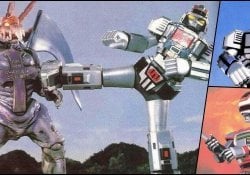If you're studying Japanese on your own, the jump from basic to intermediate can be a big one. Try to break out of traditional textbooks to progress.
Japanese is a fascinating language, and the number of Japanese learners is constantly growing. Many companies are cashing in on the wave of interest in Japanese, as there are mountains of books and CDs available that serve as great tools to get you started learning Japanese. However, it is a little more difficult to find materials for intermediate learners of the language, and even less so for advanced learners. Fortunately, there are ways to take matters into your own hands and progress beyond the beginner level. All it takes is a little creativity.
We recommend reading:
Índice de Conteúdo
Improve writing skills
Being able to write essays in Japanese can be very beneficial, especially if you are planning on studying at a Japanese university or working in a Japanese company. Of course, you may use King Essays or similar sites for this purpose. However, keep in mind that while there are some differences between writing in English and writing in Japanese, the basics of essay writing can be learned relatively easily.
Perhaps the most important thing to remember is to start by brainstorming your ideas and then organizing them into a coherent structure. Once you have a solid outline, you can start writing your Japanese essay.
While it may seem daunting at first, with a little practice, you will be able to write well-written and accurate Japanese essays.

Discover Japanese dictionaries and Kanji websites
There are many, many Japanese dictionary websites these days, but not all of them are appropriate, or even completely correct. Spend some time looking at some of the sites that work best for your purposes, and ask yourself the following questions before bookmarking the site: Is it easy to use? Are word definitions clear and concise? Does the site provide example sentences for words? Is it possible to search kanji characters by radical and dash number? It's worth spending a few hours looking for an online dictionary you're comfortable with, as it will be a necessity for progressing in Japanese.
Pick up a Japanese comic book
Once you've mastered the basics of hiragana, katakana, and about 100 kanji, start learning Japanese children's comics, known as manga. They can be found in Asian grocery and gift shops, some Japanese culture and anime stores, and occasionally in used bookstores and libraries.
Choose comics and comic anthology magazines aimed at elementary school students: while the material may not be the most interesting for an older student, the level is perfect for beginning Japanese learners. In addition, comics contain colloquial vocabulary and phrases, which will quickly improve your conversation skills. One strategy in using comics as learning material is to read the dialogue aloud and even record yourself reading it, listening to it later and trying to follow the conversation.
The article is still halfway through, but we recommend also reading:
Tune in to J-Pop
Popular music is one of the best ways to learn any language because it incorporates a lot of slang and sentence patterns. Popular songs will also give you an insight into the current culture and politics of the people whose language you are studying, which is a huge plus when it comes to conversational and cultural sensitivity. When you start listening to Japanese music for language learning purposes, choose slower songs so you can understand the words, and keep a sheet of lyrics in front of you.
Even if you're not much of a singer, sing along with the words when you can! This is a great way to get words and phrases to sink into your memory. Moreover, Paper Help suggests trying to find parallel lyrics websites with side-by-side Japanese lyrics and English translations. This structure makes it quite easy to break down the lyrics and figure out what the words mean without too much use of a dictionary. However, you may want to keep a grammar book or website close by, since many verb forms might be different from the ones presented in beginner materials. Finally, a huge advantage of studying Japanese through music is that you'll be able to go to Japanese karaoke with your friends!
Other ideas for studying Japanese on your own
Branch out and experiment with different ways to learn Japanese. Once you're comfortable with more conversational Japanese, try watching a Japanese drama. If possible, tune into a drama with subtitles in Japanese, not English. This will make the dialogue easier to follow and will be a huge boost to your kanji skills.
Likewise, watch Japanese music presentation programs and pay attention to the lyrics at the bottom of the screen. Try copying the lyrics as you watch and see if you can understand the meaning. Don't be discouraged if you have to pause the show or music several times to catch up, because it's all part of the learning process. Or, if you're really up for a challenge, try reading Japanese blogs or other sites. The possibilities are virtually endless!







